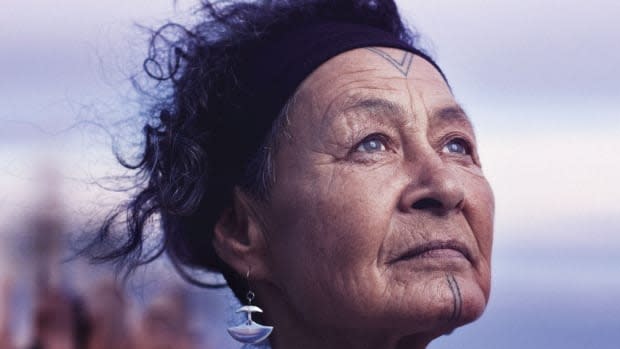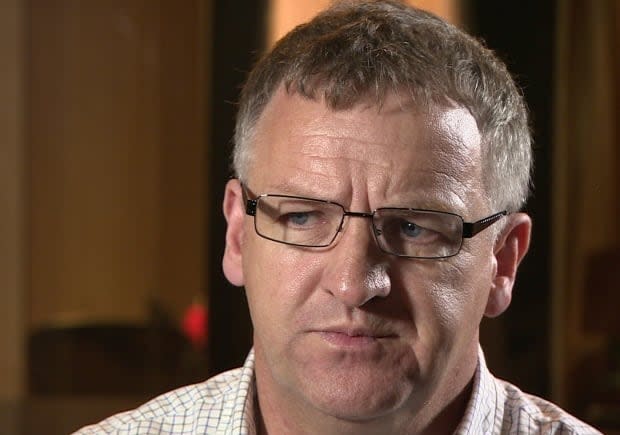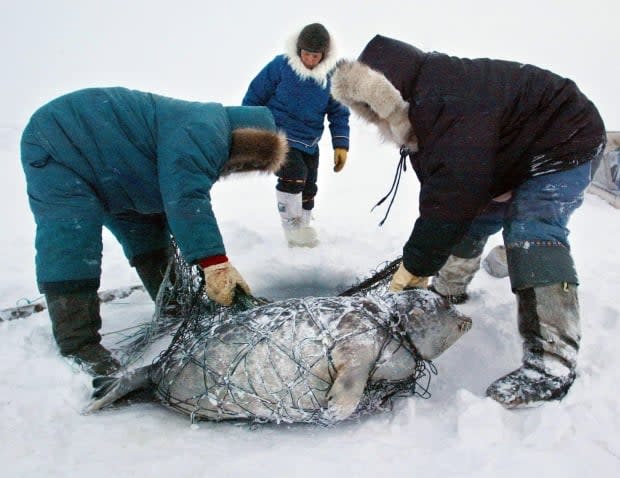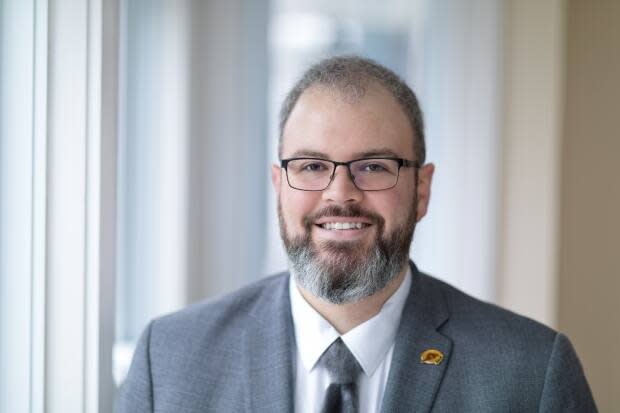Seal hunt advocate claims vindication, as Senate committee urges help for industry

When Aaju Peter led a group to The Hague, Netherlands, in 2007 to protest European legislation banning sealskin products, she knew she was in for a long fight, after decades of anti-sealing campaigns.
Seeing a federal Senate committee publish a report last week recognizing the harms done by the ban gave the Inuk activist and subject of the documentary Angry Inuk a sense of vindication.
"What we were saying 17 years ago is finally being listened to," Peter said.
The 80-page report from the Senate committee on fisheries and oceans, titled "Sealing the Future: A Call to Action," makes a series of recommendations aimed at better management of seal populations, and reviving the suffering seal-products industry.
The report lays out a series of challenges facing the Canadian seal harvest, both commercial and subsistence – 90 per cent of which occurs in Nunavut, according to the Canadian Northern Economic Development Agency.
Among those problems is a lack of education around the sealing industry, which is why the report calls for a national and international campaign to promote Canadian seal products.
Peter agrees, saying seal hunting is "very much in line" with efforts to address climate change.

"This is sustainable. This is non-polluting. This is healthy," Peter said.
The Senate committee also wants changes to the Income Tax Act so that non-profit organizations that spread misinformation about seal harvesting can have their tax-exempt status revoked.
Conservative Sen. Fabian Manning, chair of the committee, said the Canadian sealing industry is just asking for "equal treatment."
"If what has been done to the sealing industry in our country… was happening to the beef or the chicken industry in Canada, everybody would be up in arms," he said.

Healthy population, but data in Nunavut is unknown
The report says seal populations in Canada are believed to be healthy, but there is little data available on some species of seals, including those found through the Arctic.
The committee also considered the impact seal populations can have on fisheries, noting that adult seals "can eat 22 times as much fish as is commercially harvested."
However, the report also says Fisheries and Oceans Canada is "unable or unwilling to make any conclusions about the effects of seals on fisheries," and therefore more research is required.
Fisheries and Oceans Canada hasn't had catch limits on seals since 2016, because harvesters never exceeded previous quotas.

Peter says the seal harvest simply became unprofitable.
"The animal rights groups, anti-sealers, have painted such a bad, bad picture about wearing and buying seals. The economy crashed, and [now] it costs way too much to hunt for seals, if you're only to get $10 per skin," she said.
Challenge of import bans
Manning, the committee chair, is from Newfoundland and Labrador and said he isn't naive to the challenge of fighting import bans in places like the U.S. and Taiwan, but he says there is too much trade opportunity to not push for it harder.
"We're always in negotiations with [the U.S.] about the lumber, beef and pork industry… why are we not talking about the ban on the seal industry?"
An exemption to European Union's seal import ban for Indigenous harvesters was put in place by the World Trade Organization in 2015, after the EU banned all seal products in 2009.
But Doug Chiasson, executive director of the Fur Institute of Canada, said that hasn't translated to increased demand.

"Exemption for seal products harvested by Indigenous harvesters requires an incredible amount of paperwork… to have their status sent to the certifying body with the European Union," he said.
Not only that, but "there are still a lot of folks in Europe that still think that that product is illegal."
That's why Aaju Peter believes education is crucial to the Canadian government's approach to the sealing industry.
"We need to educate ourselves and our own country, and then go beyond," she said.


